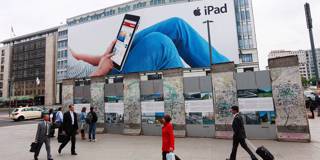After the fall of communism, Germany went from being the sick man of Europe to being its leading economic power, largely by harnessing the benefits of global supply chains. But now that a new era of deglobalization is dawning, Germany will have to think carefully about how it should manage its dependence on international trade.
MUNICH – Will Germany’s economic model survive Russian President Vladimir Putin’s war on Ukraine? As I noted in a recent talk at Harvard University, answering that question requires revisiting recent economic history.
Germany’s economy was transformed after the fall of communism in 1989. Liberalization of trade with the country’s eastern neighbors had three profound effects at home. First, it led to decentralized wage bargaining. Second, it had a flattening effect on hierarchical management in German firms. And third, it extended German production networks into Central and Eastern Europe.
On the first count, the opening of ex-communist Europe – where labor costs were lower – changed the power equilibrium between Germany’s trade unions and employers’ federation. With the loss of union bargaining power, wage negotiations shifted from the national level to the firm level.

MUNICH – Will Germany’s economic model survive Russian President Vladimir Putin’s war on Ukraine? As I noted in a recent talk at Harvard University, answering that question requires revisiting recent economic history.
Germany’s economy was transformed after the fall of communism in 1989. Liberalization of trade with the country’s eastern neighbors had three profound effects at home. First, it led to decentralized wage bargaining. Second, it had a flattening effect on hierarchical management in German firms. And third, it extended German production networks into Central and Eastern Europe.
On the first count, the opening of ex-communist Europe – where labor costs were lower – changed the power equilibrium between Germany’s trade unions and employers’ federation. With the loss of union bargaining power, wage negotiations shifted from the national level to the firm level.